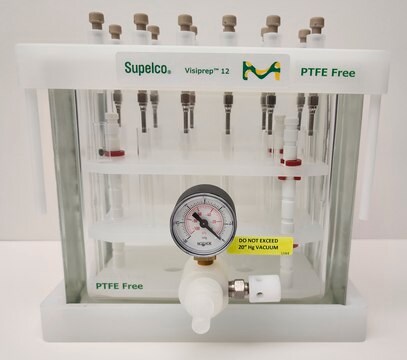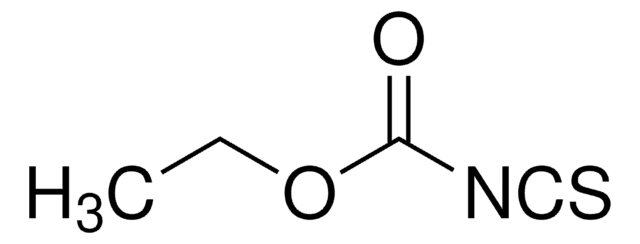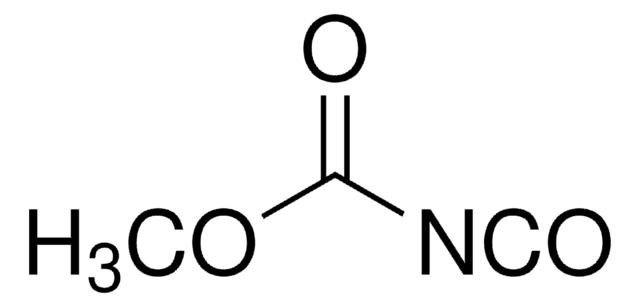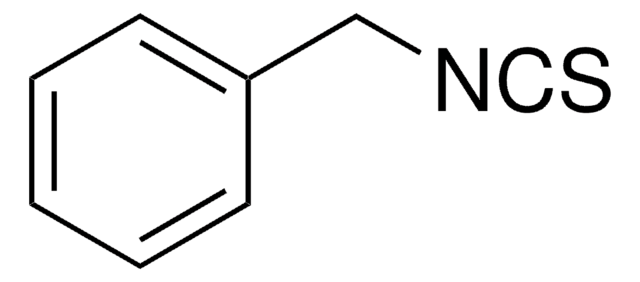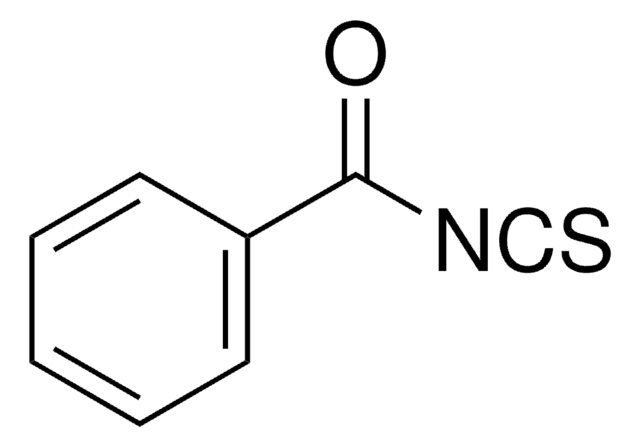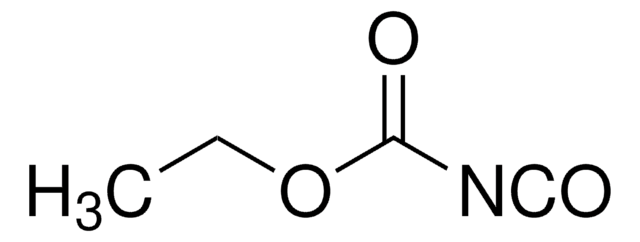Wichtige Dokumente
01230
Acetylisothiocyanat
≥97.0% (GC)
About This Item
Empfohlene Produkte
Qualitätsniveau
Assay
≥97.0% (GC)
Form
liquid
Brechungsindex
n20/D 1.532
bp
132-133 °C (lit.)
Dichte
1.151 g/mL at 20 °C (lit.)
Lagertemp.
−20°C
SMILES String
CC(=O)N=C=S
InChI
1S/C3H3NOS/c1-3(5)4-2-6/h1H3
InChIKey
VITFJKNVGRZRKB-UHFFFAOYSA-N
Signalwort
Danger
Gefahreneinstufungen
Acute Tox. 3 Dermal - Acute Tox. 3 Inhalation - Acute Tox. 3 Oral - Eye Irrit. 2 - Resp. Sens. 1 - Skin Irrit. 2 - STOT SE 3
Zielorgane
Respiratory system
Zusätzliche Gefahrenhinweise
Lagerklassenschlüssel
6.1A - Combustible acute toxic Cat. 1 and 2 / very toxic hazardous materials
WGK
WGK 3
Flammpunkt (°F)
Not applicable
Flammpunkt (°C)
Not applicable
Persönliche Schutzausrüstung
Eyeshields, Faceshields, Gloves, type ABEK (EN14387) respirator filter
Analysenzertifikate (COA)
Suchen Sie nach Analysenzertifikate (COA), indem Sie die Lot-/Chargennummer des Produkts eingeben. Lot- und Chargennummern sind auf dem Produktetikett hinter den Wörtern ‘Lot’ oder ‘Batch’ (Lot oder Charge) zu finden.
Besitzen Sie dieses Produkt bereits?
In der Dokumentenbibliothek finden Sie die Dokumentation zu den Produkten, die Sie kürzlich erworben haben.
Unser Team von Wissenschaftlern verfügt über Erfahrung in allen Forschungsbereichen einschließlich Life Science, Materialwissenschaften, chemischer Synthese, Chromatographie, Analytik und vielen mehr..
Setzen Sie sich mit dem technischen Dienst in Verbindung.